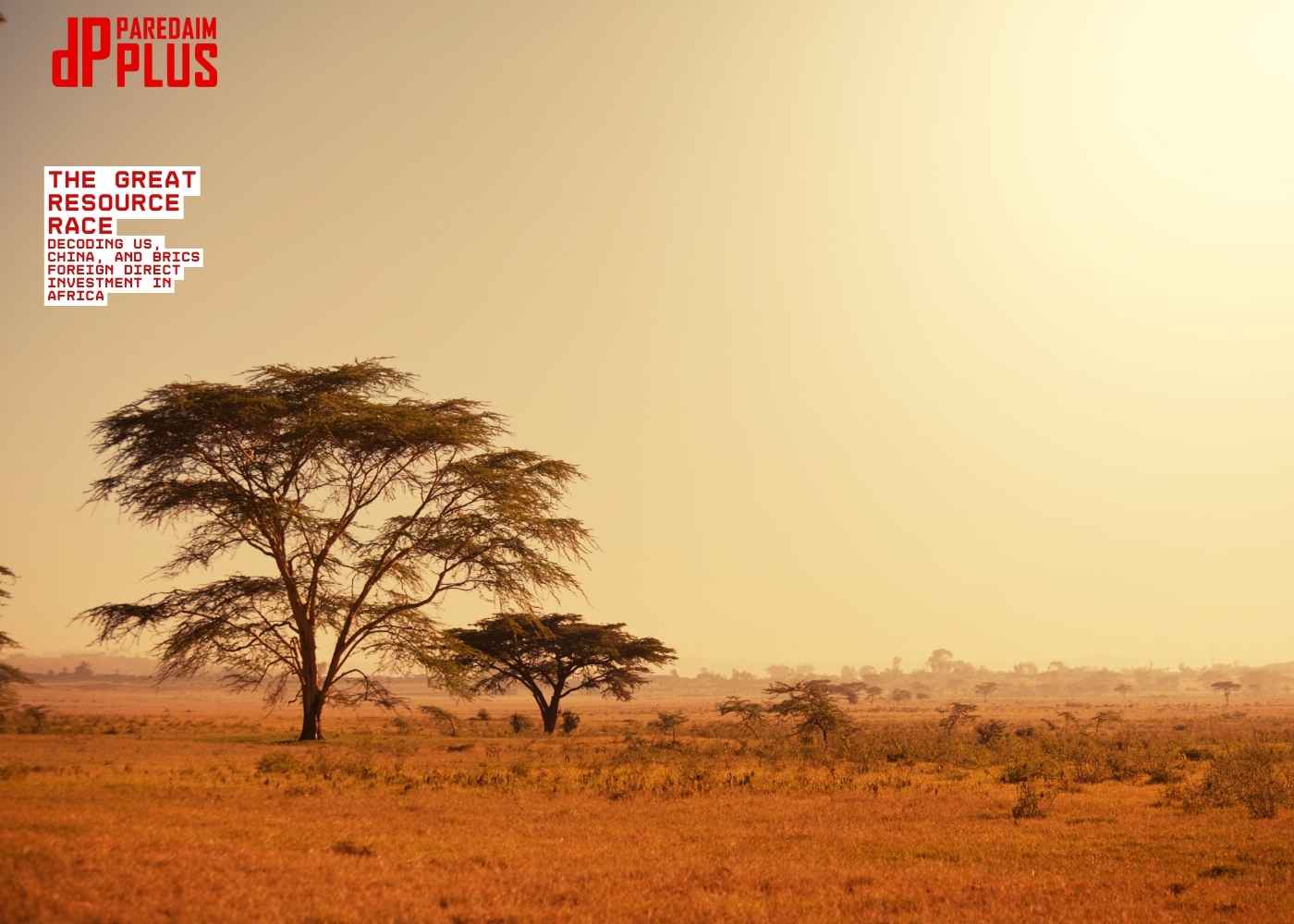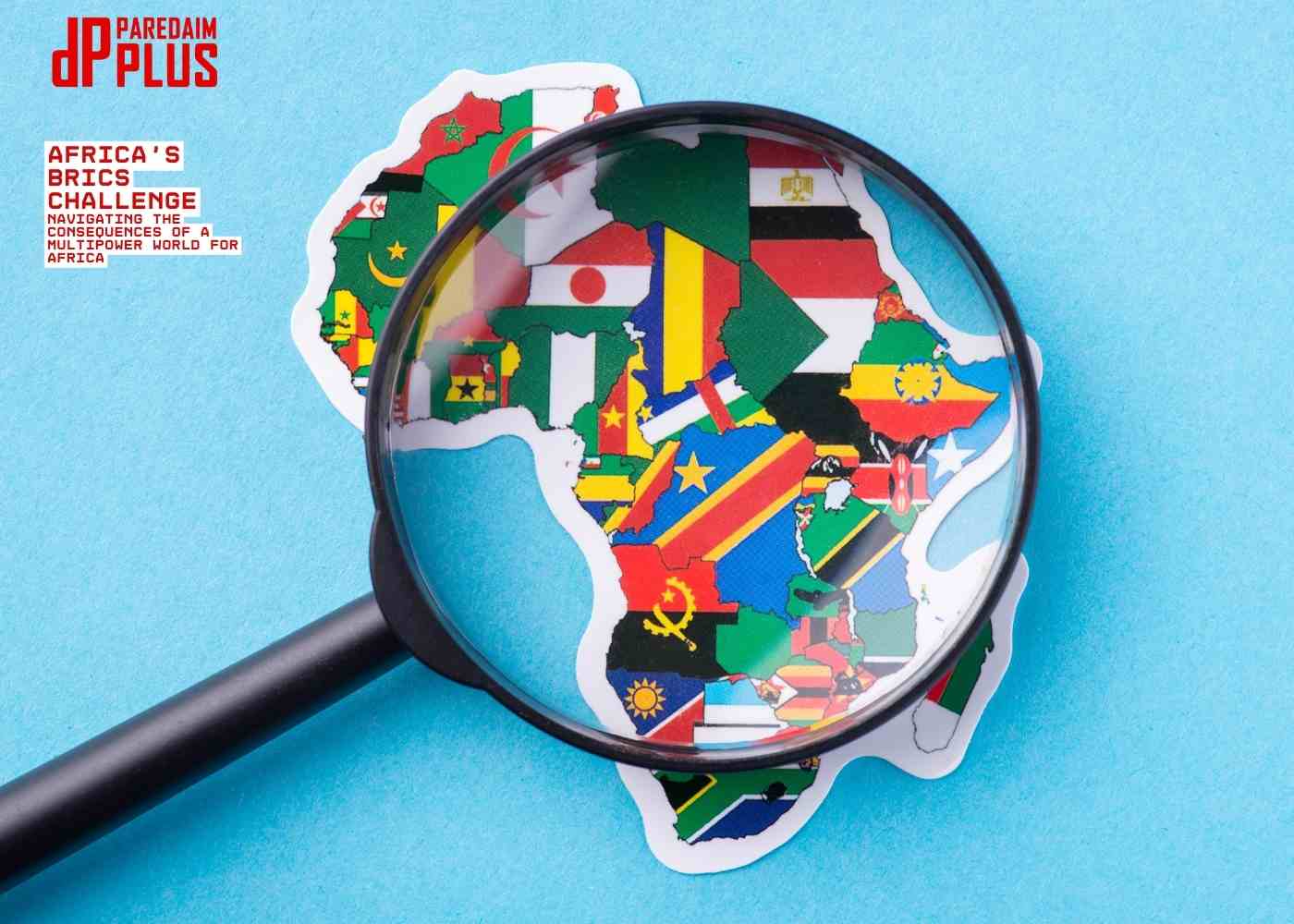
The political and economic structure of the world changes so
dramatically every few generations, and most people do not realize that until
the results are on their doorstep. The world today is in the midst of such a
transformation. The Post-Cold War world in which the United States was the
unquestioned superpower in the world is slowly being replaced by a more
competitive world. The emergence of China as an industrial power has shifted
the balance of global trade. BRICS countries are threatening the financial
hegemony of the West and the U.S dollar as the reserve currency of the world is
under unprecedented pressure. As Washington makes a second push towards
military and diplomatic aggression, the world is becoming multipolar - a world
in which there is no global agenda set by any one nation.
This repositioning can be seen in Ukraine to the Sahel, in
the South China Sea to Venezuela -the battlefields in a larger game over the
right, or otherwise, to the power, data, and mineral resources of the future.
The center-stage of this competition is in Africa, specifically Nigeria and the
broader Sahel region, which is the source of massive reserves of cobalt,
lithium, uranium, and other mineral resources that form the basis of renewable
energy systems, electric cars, and new technologies. However, these vital
resources can only be located in countries that are experiencing instability,
poor governance and competing international interests, and this makes the
continent the battleground as well as a bargaining tool in the new global
order.
To Africans, this does not represent a theoretical
geopolitical quarrel, but a question of survival, agency and sovereignty. Under
the pretext of alliances and partnerships, the influential countries are lining
up to acquire the strategic resources of Africa in the form of investments,
enticement, or coercion. In Nigeria, where domestic politics tend to overshadow
international trends, the new governments of coups, military alliances and
resource deals in the region are pointing to something more: the world is
becoming rewired in front of our faces. This article delves into what is
actually occurring under the radar and raises the most burning question of all
in this new world order. Will Africa define its own fate, or will it be the
prize that all contend for?
How Strong Is China vs. the U.S. – What the Numbers Show
China, PPP, and the nominal difference
Purchasing Power Parity (PPP) is commonly utilized to
estimate the extent of goods and services in local currencies adjusted among
nations. Recent IMF estimates indicate that the economy of China is already the
largest on a PPP basis.
In U.S. nominal USD, however, the U.S. remains the leader,
mostly due to the high overvaluation of the U.S. dollar as the international
transactions medium, and due to the reserve status of the U.S. dollar. That
enables the U.S. to borrow at low rates, sell debt and exploit its monetary and
military might.
Thus, no, there are certain indicators of
industrial/economic size (particularly when it comes to cost of living and
domestic buying power) China has achieved, but leadership of world finance,
military capability, standards, technology, etc., leaves the U.S. with several
levers.
The Dollar, BRICS, and the Fate of the Reserve Currency Order
Is the U.S. losing its reserve currency?
Recent statistics: The proportion of the dollar in world
reserves has been steadily reducing. As an illustration, in Q2 2025, the IMF
announced the slight yet significant downticks in the U.S. dollar share with
slight gains by currencies such as the Chinese yuan, and others.
The euro is also losing certain metrics; this is not only
dollar vs rest but a diversified reserve environment.
BRICS as a counterweight
The BRICS (Brazil, Russia, India, China, South Africa, and
more recent additions) have talked about the need to lessen dependence on the
U.S dollar by practicing nationalistic currencies in trade, establishing alternative
payment, etc. However, the BRICS currency is not yet decided upon, and most
experts think that this is not likely to happen soon.
The central bank director of Brazil has stated that there is
a deficit of asset base in BRICS massive enough to compete with the U.S. dollar
within the next 10 years. It does not mean that some of your thesis is
incorrect, but the schedule might take longer.
Yes, the U.S. dollar is in danger; de-dollarization is a
very actual state of affairs. However, the total demise or the sudden demise of
dollar dominance is not yet manifested - more of a gradual demise.
Rebranding of U.S. Military and Imimperial Mode
Among the tangible shifts: On September 5, 2025, President
Donald Trump issued an executive order that named the Department of Defense a
secondary designation of the Department of War. It provides additional space
for the rhetorical use of the words Secretary of War and so on in non-statutory
documents. Complete renaming, however, takes Congressional action.
This is not a trivial and symbolic thing. Symbols are
important in geopolitics - they influence posture, deterrence discourses,
military spending, civil control, and justification of foreign policy. Does it
demonstrate a complete imperial mode? Not on its own. It is just one of the
many signs of a change towards more aggressive framing.
Africa: The Prize, the Resources, the Stakes
Critical minerals & raw materials
Cobalt, copper, coltan, rare earth elements, etc., are found
in vast quantities in Africa, especially in DR Congo - components of clean
energy, semiconductors, defense technologies.
In the case of the DRC, 70 plus cent of the world's cobalt
is produced by the DRC, and it contains about 50 per cent of the demonstrated
cobalt reserves in the world, according to some reports.
Sub-Saharan Africa has approximately 30 per cent proven
critical mineral reserves according to the IMF / IEA reports, which is an
enormous opportunity, but a target as well.
Value capture
A large divide: most of the African nations will export raw
ore or semi-processed minerals, and then they will import highly processed and
value-added products, which they will lose on several layers of profit. The
ultimate product value is, in most instances, only a minor portion (less than 10
per cent) of the end product value to the country.
It is trying to add more local value (refining,
beneficiation) and policy, infrastructure, capital, governance, and
environmental/social costs are major issues. When they are not managed
effectively, resource wealth is likely to turn into a curse instead of a
blessing.
What to Watch and Do by the Nigerians
What do you learn if you are in Nigeria or in other African
countries?
1. Economic relationships should be diversified.
Do not count on a single great power or money. Commerce with
China, with India, and with the rest. Establish regional trade with neighbours.
Where feasible, use your own currencies to cut on exposure.
2. Make investments in value-addition capacity.
It is not the mining of raw minerals which is more valuable
than the refining, manufacturing. The policies should be able to incentivize
beneficiation, local industry, power and infrastructure to support downstream
industries.
3. Empower institutions and governance.
Openness, democracy, equitable agreements, and environmental
regulations- all minimize the chances of being used. Moreover assists in
bargaining with external actors who are more powerful and on better standing.
4. Be suspicious of information activities/stories.
Outside powers can use wedges/tools in the form of memes,
which are religious or identity-based stories. There is a need to have
informed, critical, and independent media.
5. Nonalignment + agency
Nonalignment is not indifference or inactivity. It is
keeping agency: selecting partners, treaties, economic and security policies
that defend domestic interests and not just falling into the great power
conflicts.
Counterpoints & Caveats
Although China is large in the PPP, the population incomes,
debt problems, and demographic issues are important. Raw scale does not
necessarily translate into long-term dominance.
U.S. enjoys a great financial, legal, military, and
technological edge, yet continues to be an innovation and capital movement hub.
The international system (institutions, law, norms) is not
completely dead, but it is not flawless. Even though they may appear to have no
teeth, they offer structures that are still used by others.
The dependency on resources is dangerous. Unless mineral
wealth is well managed, it poses a serious threat, such as political
instability, conflict, and environmental degradation.
Conclusion
When you take the religious or the very ideological
spectacles off, this is what the evidence points to:
- By certain estimates (PPP), China has already surpassed the
U.S. and is still rapidly industrializing. The U.S remains the leader in
nominal economy, military capability, innovation, and banking institutions.
- Reserve-diversification, BRICS trade mechanisms, emergence
of other currencies (in particular, the yuan) are all real threats to the
hegemony of the U.S. dollar. However, a radical downfall is hardly in the
offing within the next few years, but instead, a slow, gradual transformation
is much more probable.
- The change of the name of the military-political (e.g.
Department of War) is an indication of an ideological shift in U.S. posture-
becoming more assertive, less apologetic in its description of defense. It may
still be speculative whether this will lead to open colonial-type invasions or
conquests, but the possibility is a reality.
- Africa, particularly the resource-rich regions (DRC,
northern Nigeria, Sahel, etc.), is now entirely in the crossfire of this
international contest, not only of extraction but also of geopolitical
positions, security partnerships, and narrative control.
- Organizations such as the UN, ICC are losing their power in
obvious enforcement; standards are being tested. But they are not already
everywhere irrelevant, they must still be activated, not merely by law.
To the Nigerians: the world is shifting. The opportunity
exists but only to those who are strategic, have invested in local capacity,
were custodians, and not pawns.






